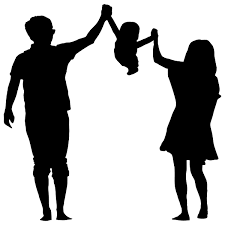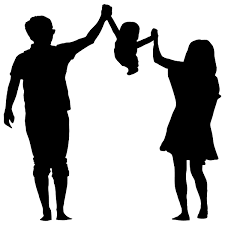
I want to say a few things about the effects of trauma and what you can do to help yourselves and your children through this difficult time. Children take their cues from parents, so it is vitally important that you take care of yourselves so that you can be optimally available, emotionally, to your children.
In a Youtube video addressing COVID-19, Bessel van der Kolk, trauma expert and author of the book The Body Keeps the Score, says,
Being in a situation where you cannot do what you always do, where you are basically rendered helpless, that’s the definition of trauma.
He goes on to say
We are all living under a pre-traumatic cloud right now. We don’t know what’s going to happen and we don’t know what we can do very well about how to control it. So the only thing that we can control is our own reactions.
What happens in the brain when we are experiencing something traumatic? What are the kinds of things we might be feeling?
We might be feeling helpless and overwhelmed. We might be feeling a need to do something, to act. And we might be feeling frozen. Indeed, we are frozen in our homes.
These feelings are part of the fight/flight system that evolved long ago to keep us safe by helping us recognize and react quickly to danger. The fight/flight system is activated when the primitive parts of our brains sense danger. They spur us to respond before we have a chance to think things over, before the rational brain gets online. The trouble is that often in times of trauma, the stress hormones released—adrenalin and cortisol—remain in the body, keeping us feeling overly alert and anxious, even though we are not in immediate danger
There are things you can do to counteract this kind of amygdala response. For one, you can breathe. Breathing is automatic but also under voluntary control. You can mitigate the fight/flight response or a startle reaction by deep, slow breathing. You can find many guided meditations online. I like Smiling Mind, an app or website where you can find meditations for kids and adults.
Sometimes, our response to trauma is to feel frozen. This is often the case when we feel that there is nothing we can do to stave off the danger. While there are steps we can take to protect ourselves from contracting COVID-19, it is an invisible threat and can make us feel helpless and frozen. And when you feel helpless and frozen, the stress hormone levels remain high. In such cases, it is good to move.
Trauma is experienced in the body, and to counteract the effects of trauma, you must use your body. So get moving.
Exercise is really important. Go for a walk. I walk my dog every day, and I’ve seen more people out than ever. While we are all keeping an appropriate distance, it is heartening to see all my neighbors. Kids are riding bikes, running, using skateboards. If you have them, lift weights or do a pilates or yoga routine. Get your kids involved in moving, too. Since school is on a screen these days, use some free time away from screens to move and play with your kids.
Cook. You are home with your kids. Perhaps now would be a good time to introduce them to cooking. Usually, kids love to help cook and to learn about cooking. Cooking is a life affirming activity that is active, purposeful, and supports community.
Finally, human beings rely heavily on our attachments to loved ones to maintain a sense of safety. Allan S. Schore and Judith R. Schore, modern attachment researchers and theorists whose work stems from that of John Bowlby, the originator of attachment theory, have shown that our attachment systems are central in regulating affect. We need proximity to our loved ones or attachment objects in order to feel safe and in order to counteract the effects of trauma.
During World War II children were evacuated from London to ensure their physical safety. They were placed in foster homes or group settings usually away from their parents. What D.W. Winnicott and Clare Winnicott learned from their experiences with these children was that children kept in London with their parents fared much better emotionally than children who were evacuated, even though they lived through the terror of the bombings.
While children today are separated from their friends and teachers, at least they are close to their parents, and therefore despite the physical dangers, they are better off emotionally. Of all the things we can do to counter the effects of trauma, from breathing, meditation, yoga, exercise, cooking, playing, perhaps the most important is just being with those who make us feel safe. As van der Kolk points out “social support is the most powerful protection against becoming overwhelmed by stress and trauma.”
Our connections are so important to us as we go through this time. While it can be stressful to spend so much time shut in with our families, keep in mind that for our kids, being close and connected means being safe.

